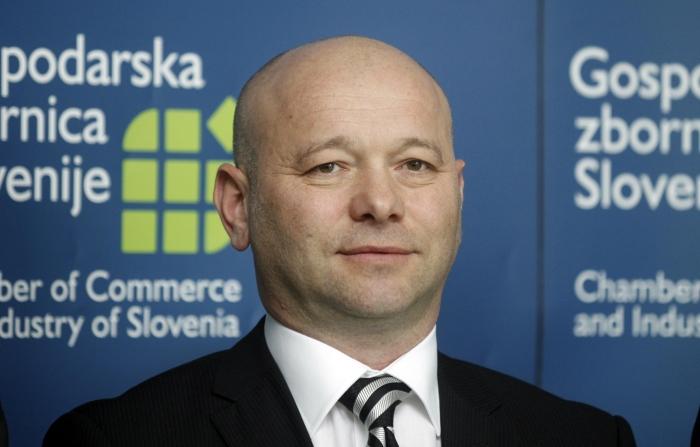
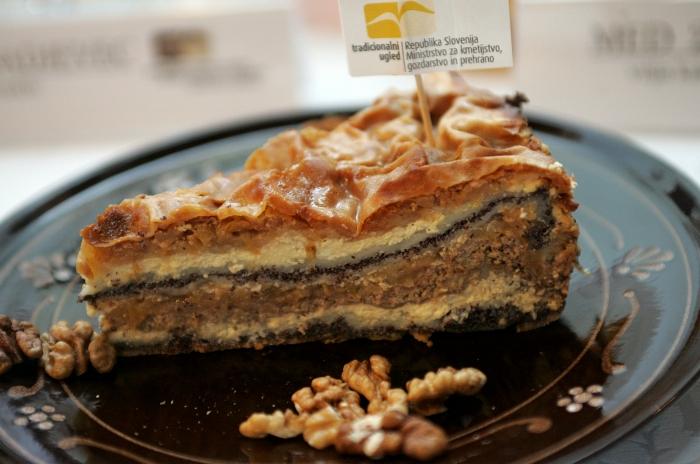
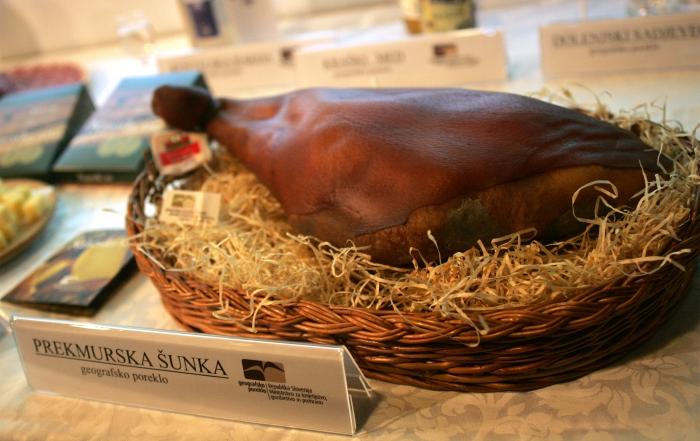
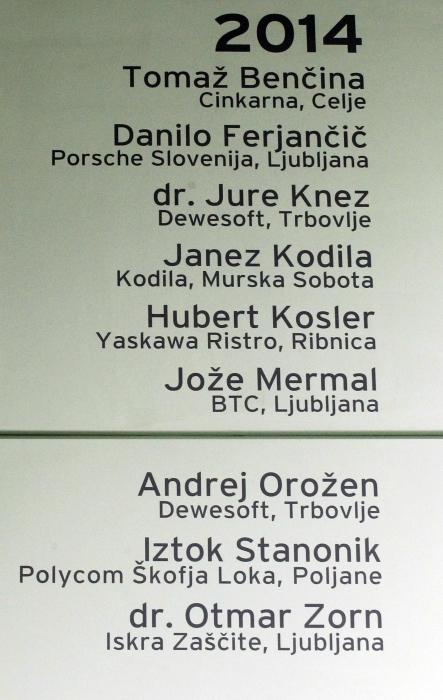
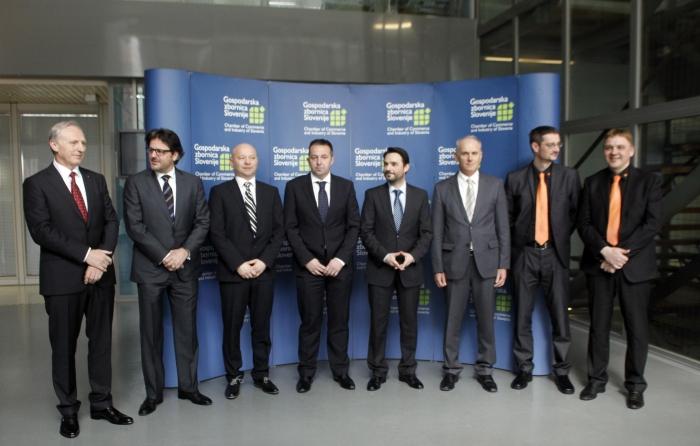
Although he did not imagine that he would take over a family company Mesarstvo Kodila (Meat Trade Kodila), which was a well-known local provider of meat in the Prekmurje region, today he proudly talks about his business. “Blood is thicker than water,” Janez Kodila laughs when he says that after his father retired he refused to leave Kodila to go out of business, so he incorporated his company with his father’s one. Since he had a different vision, he soon changed working methods and a range of products, shifting from selling fresh meat to selling dry meats, sausages and pastes. Now the range of products is being expanded with non-meat products.
This year, Janez Kodila received the Chamber of Commerce and Industry of Slovenia’s award for extraordinary economic and entrepreneurial achievements in 2013. His company is one of the few which has – despite the present tough economic situation – decided to invest in new manufacturing facilities in Markišavci near Murska Sobota, where the visitors can see how the production process takes place. At the moment, the company has 22 permanent and 13 contract workers.
In addition to developing his trademark, Janez Kodila hs also initiated the regional integration under the brand Diši po Prekmurje (It smells pleasantly of Prekmurje). He believes that recognisability of the geographical origin of Prekmurje is the key to success, thus this brand name includes two protected products, namely ‘prekmurska šunka’ (the Prekmurje ham) and ‘prekmurska gibanica’ (the Prekmurje layered cake), and other high-quality products of the Prekmurje region.
From meats to ‘gibanica’, pasta and bread. What do you take in account in respect to expanding the range of products?
The sale of meat products still accounts for 90%. However, after we had finished the building of a new facility and renovation of the old one less than two years ago, we started the production of non-meat products. Our company does not intend to expand and industrialize in the field of meat industry; however, in addition to meat, we need supplementary product lines or food that goes with meat, especially to extend the range of products in our shops. Our offer also includes products of other providers from Prekmurje, as part of the trademark Diši po Prekmurju. Our aim is especially to develop high-value products in line with ecological standards. In the new facility in Markišavci we are trying to attract demanding shoppers who are health conscious and are looking for quality. We are not interested in the classical bread and pasta, we want to offer different products.
Is there enough consumer demand for boutique products?
Yes and no. We don’t make living from these; still, the image of our shop and trademark is being improved. We started this business last year, so it’s too early to talk about the results. I myself consider the extension of the range of products in our shop positive. Sales and financial segments are not positive yet. Nevertheless, we still develop ideas and I hope that they will bring success. I never have a bet on a single horse. My company develops 10 products, and while one of them may last for a long term, the others will help us gain experience.
Prekmurje as a region of vast lowlands full of natural beauties is known also for its culinary delights. Is the regional integration the key to the breakthrough of the whole region?
Of course it is. If a region is recognisable, we all gain advantage in it, which is not the case in an individual company’s recognisability. For example, we are all familiar with Tuscany, but we know no individual producers from Tuscany. I’m aware of the importance of being regionally recognisable, and I understand what meaning Prekmurje as a brand has in gastronomy – the names ‘prekmurska gibanica’ and ‘prekmurska šunka’ indicate regional recognisability. The influence other countries had over Prekmurje throughout history have made us unique. We should be aware of this and accept responsibility towards this heritage. We see real advantage in integration – good ham is best accompanied by a good wine, bread and dessert. However, to arrive at broad understanding of this, there’s still much to be done. These capital goods could be better exploited.
Perhaps in culinary tourism?
Yes, indeed. However, our region is in a chaotic situation: we are trapped, since the biggest provider of accommodations is the Sava Group, which has a different strategy. Local providers are unwelcome, supported are foreign providers. The name of the region is being exploited, but nobody rewards it for this – for example, the region’s heritage cannot be seen on a plate.
Should there also be adopted a specific strategy at national level to promote local integration into a recognisable product line?
Slovenia has already developed several strategies, but the problem lies in too many municipalities which have their own plans. There exists a law on Prekmurje; still, we are waiting to see what it will bring. The region has natural and cultural heritage – our region is Slovenia’s breadbasket, where the most pigs are bred, and ideal conditions exist for cycling, health resort and wellness tourism. We have Tuscany at home, but we lack its value added. And this probably can’t be establish by one generation. More time is needed.
Is your strategy oriented mainly towards the Slovene market or also to foreign ones?
Our strategic plan is aimed at global markets. When I took the company over, I had a plan to turn from a local food provider to provider for the whole of Slovenia. Now, our company has become quite recognisable. We’ve been present in international markets for more than a year, although this accounts for only 5% of the company’s revenue. Last year, we decided to present our products at voluntary competitions, where we were awarded quality labels: at the biggest evaluation of meat products held by the German Agricultural Society (DLG), and at the meat industry fair in Frankfurt (IFFA), where our products were awarded seven gold and one silver medals. We participated in these competitions in order to be actively involved in the search of new clients in these markets. The breakthrough with foodstuffs to international markets is not that easy, as we are not the Italians, Spaniards, French or the Greek who enjoy culinary reputation. Nevertheless, the domestic market provides a basis for our business and, moreover, we don’t expect to make living from sales in foreign markets. However, there we’ll probably sell value-added products.

































































